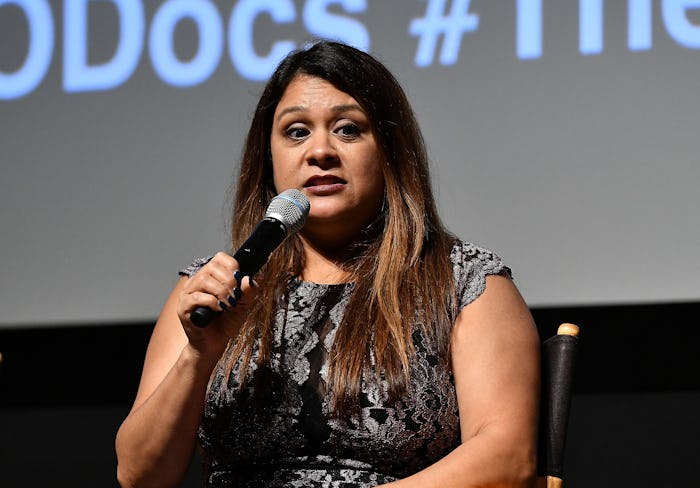News

Here's What The Subject Of HBO's 'The Sentence' Cindy Shank Was Charged With
There are some stories that will stick with you forever and Cindy Shank's is definitely one of them. The Sentence, a new HBO documentary, tells the story of Shank, a mother of three, and highlights the devastating consequences of mandatory sentencing. For many families, mandatory sentencing is not just a story, but something that has personally affected them. And after hearing about the new documentary, many people might find themselves wondering what Cindy Shank was charged with that landed her in jail for several years.
The Sentence is the product of first-time filmmaker Rudy Valdez, who is the brother of Shank, according to HBO. For this reason, there is a deeply personal layer added to the story, but perhaps that's what makes it so compelling.
Shank's story begins in May 2002, when Shank's boyfriend, Alex Humphry, was shot and killed. After searching their home, law enforcement found cocaine, marijuana, and guns, according to The Detroit Free Press, and it was reported to be the biggest drug bust in the city's history at the time.
Shank testified she was not involved in Humphry's drug operations and that she had been afraid to leave him, as reported by The Detroit Free Press. According to the outlet, charges brought against Shank in connection to Humphry's drug enterprise were later dismissed.
Shank thought she had a second chance on life and made the most of it. But in 2007, a knock on the door changed everything.
In 2007, according to The Washington Post, the federal government brought charges against Shank. She was prosecuted and eventually convinced on drug conspiracy charges, as reported by The Washington Post. The crime carried a 15 year mandatory sentencing, as reported by Newsweek.
“Five years later,” Shank said, according to Newsweek, “the prosecutor goes back to the defendants and asks, 'Are you sure you don’t remember anything about Cindy?' They’ve been sitting in prison for five years, they’re facing 20-, 30-year sentences, and now they remember stuff.”
Mandatory sentencing laws have come under fire in the past. These laws require judges "hand down a minimum prison sentence based on the charges a prosecutor brings against a defendant," as defined by the Criminal Justice Policy Foundation.
"Prosecutors frequently threaten to bring charges carrying long mandatory minimum sentences and longer guidelines sentences. These threats are effective in scaring a defendant to plead guilty in exchange for a reduced sentence and to give up every factual and legal basis for a defense," the CJPF's website noted.
The Sentence shows not only Shank's story, but the impacts mandatory sentencing had on everyone around her, including her three children. As reported by The Los Angeles Times, Valdez began filming to ensure his sister would not miss any home moments.
Valdez also began petitioning for his sister's clemency. “I knew the odds were completely stacked against us, but they hadn’t said no yet,” Valdez said, according to The Los Angeles Times. “I wasn’t going to say, ‘Oh, that’s too hard so I’m not gonna go for it.’ I had to. I could never look her children in the face, or look her in the face." Shank is no longer in prison and in March 2016, she was granted clemency by President Barack Obama.
Still, as The Sentence shows, the impact of those years she spent away from her family cannot be erased.